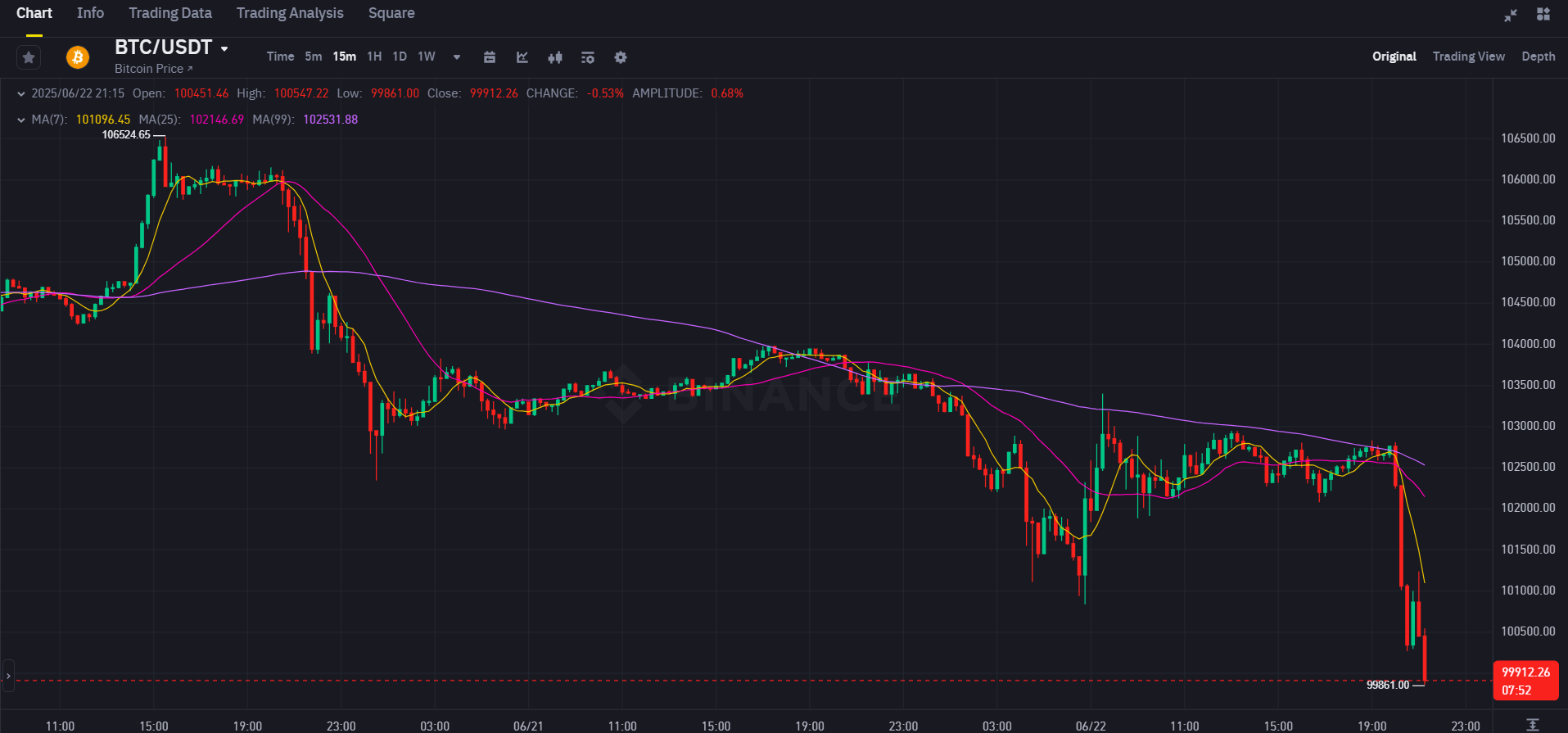Bitcoin crashes on Iranian Parliament approval of Hormuz Strait closure

Key Takeaways
Bitcoin price dropped as Iran’s Parliament approved the closure of the Strait of Hormuz, heightening fears of oil supply shocks and global inflation.
A prolonged closure of the strait could drive oil above $100 per barrel, impacting global GDP, inflation, and crypto markets.
Share this article
The price of Bitcoin fell from nearly $103,000 to around $99,700 on Sunday morning after Iran’s Parliament approved the closure of the Strait of Hormuz, one of the world’s most strategically important chokepoints for global trade and energy supply.


The parliamentary move, first reported by Reuters, came hours after the US launched coordinated strikes on Iranian nuclear targets, marking Washington’s first overt military intervention in the Iran–Israel conflict. President Donald Trump described the operation as “very successful” in a post on Truth Social on Saturday evening.
Tehran’s threat to close the Strait of Hormuz is interpreted as a direct response to escalating US military actions, but the closure is not yet in force. Implementation of the measure is now in the hands of Iran’s Supreme National Security Council and, ultimately, Supreme Leader Ayatollah Ali Khamenei.
The Strait of Hormuz handles approximately 20 million barrels of crude oil daily, representing 20% of global daily consumption and almost one-third of seaborne oil trade.
As the only deep-water channel capable of accommodating the world’s largest oil tankers, the strait is essential for major economies including China, India, Japan, and South Korea, with China sourcing nearly half of its crude imports through this route.
Analysts warn that a possible closure could drive oil prices above $100 per barrel, with potential spikes to $120 or $150 if disruptions continue.
The impact would extend beyond energy costs, affecting household fuel bills, industrial inputs, and transportation expenses, as oil underlies the production and delivery of about 95% of global goods.
Economists estimate that the inflationary impact of rising oil prices could reduce global GDP by 1-2% if the strait remains closed for an extended period. Central banks face a challenging decision between raising interest rates to control inflation or easing policy to support economic growth.
Share this article













